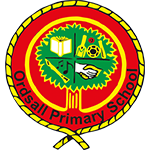Maths
At Ordsall Primary School, excellence in teaching and enjoyment of learning is at the heart of what we do. Our Maths curriculum incorporates the statutory requirements of the National Curriculum 2014 and also includes other experiences and opportunities which best meet the learning and developmental needs of the children in our school.
The 2014 National Curriculum for Maths aims to ensure that all children:
- Become fluent in the fundamentals of Mathematics
- Are able to reason mathematically
- Can solve problems by applying their Mathematics
At Ordsall Primary, these skills are embedded within Maths lessons and developed consistently over time. We are committed to ensuring that children are able to recognise the importance of Maths in the wider world and that they are also able to use their mathematical skills and knowledge confidently in their lives in a range of different contexts. We want all children to enjoy Maths and to experience success in the subject, with the ability to reason mathematically. We are committed to developing children’s curiosity about the subject, as well as transferable skills to use in the future and we place an emphasis on our Maths teaching being linked to real life concepts. This then enables our children to have purpose for their learning and valuable lifelong skills.
Education Endowment Fund research indicates that Mathematics is essential for everyday life and a foundation for careers in technology, science, and engineering, among many others. School agree that Improving the attainment of children in mathematics should be a main priority.
Our intent for mathematics is to teach a rich, balanced and progressive curriculum using Maths to reason, problem solve and develop fluent conceptual understanding in each area. Lessons are child focused and Maths is kept fun and current in school. Our curriculum design allows children to better make sense of the world around them relating the pattern between mathematics and everyday life. Our policies, resources and schemes support our vision e.g. our calculations policy, marking policy and White Rose Maths schemes of learning.
The content and principles underpinning the 2014 Mathematics curriculum and the Maths curriculum at Ordsall Primary School reflect those found in the White Rose schemes of work. These principles and features characterise the mastery approach and convey how our curriculum is implemented: Teachers reinforce an expectation that all children are capable of achieving high standards in Mathematics.
In the Early Years Foundation Stage (EYFS), we relate the mathematical aspects of the children's work to the Development Matters statements and the Early Learning Goals (ELG), as set out in the EYFS profile document. Mathematics development involves providing children with opportunities to practise and improve their skills in counting numbers, calculating simple addition and subtraction problems, and to describe shapes, spaces, and measures. We continually observe and assess children against these areas using their age-related objectives, and plan the next steps in their mathematical development through a topic-based curriculum.
When teaching Maths at Ordsall, we intend to provide lessons which cater for the needs of all individuals. We incorporate sustained levels of challenge through varied and high quality activities with a focus on fluency, reasoning and problem solving. Pupils are encourage to explore Maths in depth, using mathematical vocabulary to reason and explain their workings. A wide range of mathematical resources are used and pupils are taught to show their workings in a concrete fashion, before establishing ways of pictorially and formally representing their understanding. We actively encourage resilience and perseverance when approaching challenges and foster a positive working environment.
How do we measure the Impact of our work in Mathematics?
The impact of the work in Mathematics is measured in a variety of ways at Ordsall Primary School. The school uses its knowledge and vocabulary progression map to compare the work that the children are doing with key points on the maps. This allows the staff to assess where the children are, and check which elements are evident from the progression on the maps and also those elements that may need further work. This is done through pupil discussion, (when the children are asked about their work) the scrutiny of the work that children do (this is done by looking in the children's books), along with learning walks, looking at the work on display, a scrutiny of social media posts about Mathematics as well as evaluating any internal or external assessment information we have from statutory tests and internal assessment checks. Any internal assessment information is used to back up what evidence is found from the classrooms and in the books of the children.
